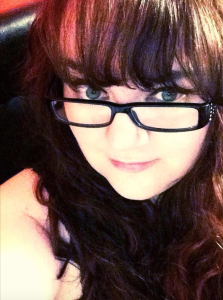Recovery means many different things to many different people. It’s a very difficult and personal journey. Not everyone is strong enough to realize they need help, let alone know what to do once they get it.
You often hear people speaking about a place called “Rock Bottom.” The consensus is that to help yourself, you have to realize when you’ve hit the bottom. Some people take years to get to that point. Some people never get there. I’m grateful to say that I am one of those that beat the odds. I hit that bottom, and I hit it hard. The most difficult thing I’ve ever had to do was make my way back up.
I was diagnosed with bipolar disorder at the age of 19. I started taking medication at that time and still do at age 42. I’ve always been realistic about my condition. Having attempted to exist without medications, I know that they are a necessary evil. If I stop taking them, it doesn’t take long for me to fall into a deep, dark depression. If the physical symptoms of withdrawal don’t kill me first.
I’m logical enough to understand that I will never fully recover from bipolar disorder, and I’m OK with that. Some people have to take medication for the rest of their lives for diabetes or heart disease. So, I don’t burden myself with the thought of getting better. Don’t get me wrong, I am always trying to improve myself and the way that I feel, but I know that there is no cure for bipolar disorder.
In my late 20’s I made the mistake of thinking that I might not want to be around anymore. My depression was beginning to take over my life. Even relatively normal heartaches seem to affect me much greater than the average person. I was also experiencing migraines that started at the age of 12. The older I got, the worse they got.
I felt like I had lost complete control over my life, so I was going to try to kill myself. I was using an old razor, and when I didn’t receive the desired effect, I kept going. Eventually, I stopped thinking about dying and starting to experience what could only be described as calm. I had no idea that this was “a thing”. My mind just kept taking me back to the thought that I was such a failure at life, I couldn’t even commit suicide correctly.
Eventually, self-injury became a huge part of my life. I had rituals, songs I played, an entire box of instruments, and a safe place to hide them. One night, I made a mistake and went too far. I couldn’t possibly confess to my parents what I was doing, so I did the only thing I thought I could. I called my then boyfriend who abused me, and asked him for help. He drove me to his sister’s house because she had once studied to be a medical assistant. Sitting at her dining room table, she stitched up my arm, with no sanitation and no numbing solution for the pain.
As I got a little older, self-injury wasn’t necessarily as important to me, but it was always in the back of my mind. I was humiliated when I would date, and the guy would see my scars. I was covered with them.
In May of 2001, I officially started dating the man who would become my husband. He was extremely supportive, but just as confused as anyone else was. He didn’t understand that I was already beating myself up enough; I didn’t need him to get mad at me for the behavior. Eventually, we started working through it, and my urges were much less frequent. In fact, I went five years without an incident until 2013.
Despite the fact that self-injury was no longer a big piece of my life, I still kept some instruments hidden in our house. When my life went into a fullon tailspin that June, it was the only thing I could think about. Truthfully, once I started again, I was so depressed that I didn’t care if I died. I just wanted the pain to stop. With each pass over my skin, I felt a myriad of emotions. Failure, fear, guilt, and even a small amount of relief. I couldn’t stop sobbing, and eventually I must have cried myself to sleep because I woke up some time later to my doorbell ringing. My husband had called my family from work and sent my dad and my sister over. At that point, I was the only one that knew I had also swallowed a full bottle of medication.
I was admitted to the hospital, and later I was committed by the state. It was the worst experience I have ever had in my entire life. It was a horrible, horrible facility. I played the game and was a model patient.
After four days, they let me out. Driving home with my husband, I swore I would never take another sharp instrument to my skin again. I pushed all of the past failures to the side. I focused on the here and now and started a clean slate. I developed my own coping skills, and I started writing. I wrote a lot. It began as a blog but has become a book. I am proud to say it was just released on August 21, 2015!
Don’t get me wrong, I still have urges. They may never go away. However, I know now how to put a voice to my feelings and communicate with my loved ones. This past June, I celebrated two years clean of self-injury. What an enormous milestone for me. I’m so grateful to the people that stuck by me during this journey. Nothing about it has been easy, but I am a survivor. In fact, I’m a warrior.
 About the Author: Rebecca Lombardo
About the Author: Rebecca Lombardo
At 42 years of age and happily married for 14 years, Rebecca can finally say that she is on her way to reaching her dream. Not only does she hope to help people that are struggling with depression, she hopes to help them realize that you are never too old to find your voice.
Connect with Rebecca via email , or on Facebook or on Twitter. You can find out more about Rebecca’s book, It’s Not Your Journey by heading over to her website.



I love that you have spoken out. I will use this for my clients so that they too can see the disease is not absolutely hopeless. Thank you
Wonderful words Rebecca thank you. As more and more strong people like yourself come forward and talk about their own stories, it educates others about this type of mental suffering and hopefully the stigma lessens just a little bit as people gain some understanding.